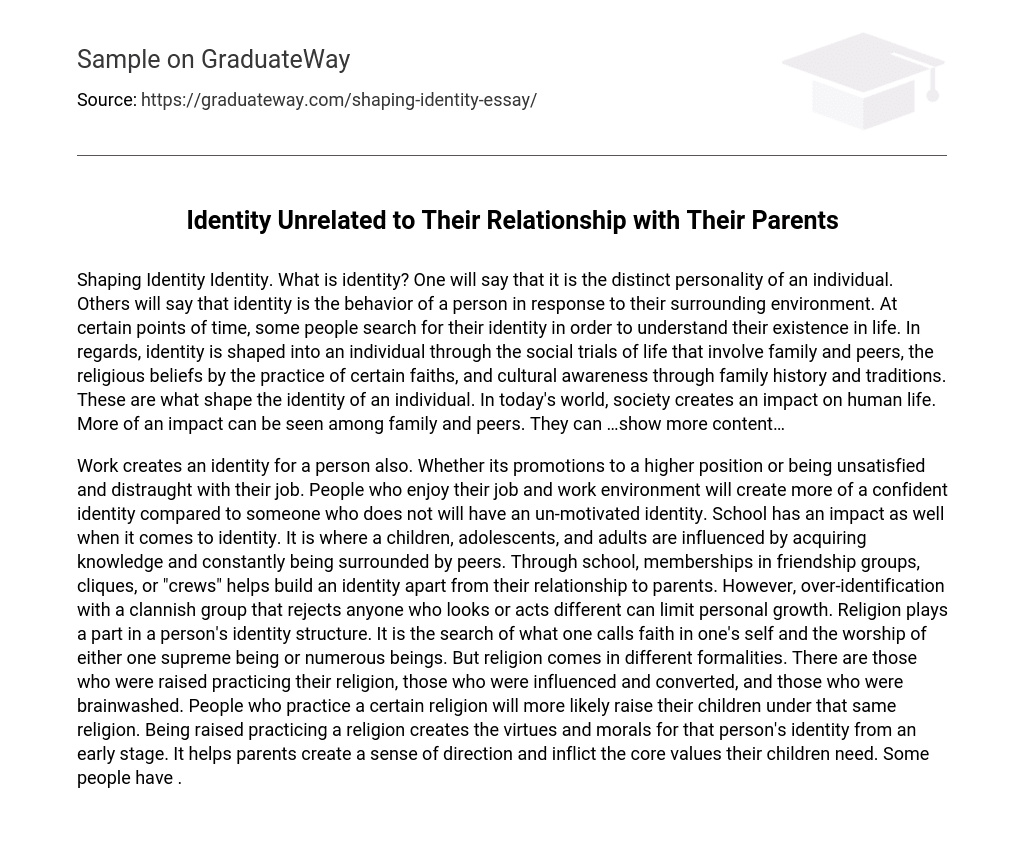Identity is a complex idea that can be understood in various manners. Certain individuals perceive it as the unique qualities and traits that define them, while others see it as how they behave in relation to their surroundings. Many people attach great importance to exploring and understanding their identity. It is influenced by social encounters, including interactions with family members and peers, and shaped by religious faiths and cultural knowledge passed down through generations. These factors profoundly impact an individual’s growth. Society, especially within familial and peer contexts, holds significant sway over the way one forms their identity and perceives themselves.
The role of work in shaping one’s identity is significant, as it can greatly impact how individuals perceive themselves. This influence can stem from career advancements that provide a positive work environment and job satisfaction, leading to a confident sense of identity. Conversely, individuals who are unhappy with their jobs may develop a less motivated sense of self.
Education also plays a crucial part in shaping an individual’s identity, particularly within the school environment. Children, adolescents, and adults are constantly exposed to knowledge and surrounded by peers during this time period, which can heavily influence their formation of identity. Joining friendship groups or cliques within the school setting helps individuals establish their own distinct identities separate from their relationship with parents. However, it is important for them to avoid over-identifying with exclusive groups that reject those who appear or behave differently as this hampers personal growth.
Religion is another factor contributing to an individual’s identity structure. It involves seeking faith in oneself and worshiping either a single supreme being or multiple deities. However, religion takes on various forms depending on upbringing and personal choices. Some people are raised practicing a specific religion while others convert later in life or may even be subjected to brainwashing techniques. The practice of a specific religion increases the likelihood that individuals will raise their children with the same beliefsThe upbringing in a religious setting during childhood plays a crucial role in establishing moral values and virtues that form the basis of one’s identity. Additionally, it aids parents in imparting essential core values and offering guidance to their children. Overall, work, education, and religion collectively influence an individual’s development of personal identity.





